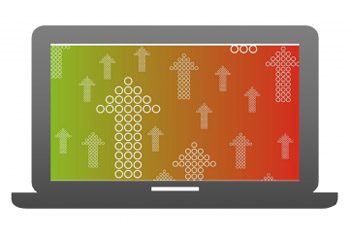Klick Health has released preliminary new data from a study it commissioned, suggesting the more that chronic patients manage their conditions online – the better they feel about their health.
The study reveals three distinct types of chronic patients, which are based on digital lifestyles rather than traditional demographic segmentation, such as age or computer access. While 98% of chronic patients connect to the Web across multiple devices 18% go online daily or weekly to integrate digital technologies that help manage their health (Integrators); 47% use the Internet on a monthly basis to seek health information (Seekers); and 35% don’t go online for health reasons, saying they manage their health in strictly non-digital, traditional ways (Traditionalists).
Thirteen percent of Integrators say they are in excellent health compared to only 4% of Seekers and 2% of Traditionalists. Within the Integrator segment, two-thirds use digital to do research across the patient journey, notably pre- and post-doctor visits, after therapies have been prescribed and when patients have issues and/or free time.
Of the 19% of patients who use mobile for health-related activity, a significant number expressed strong interest in more data-driven, patient-physician interaction.“It’s very clear from the data that patients want to increasingly leverage digital to exercise control in their day-to-day health and help guide their destinies,” said Peter Flaschner, SVP, Client Experience at Klick.
Like most Americans researching health, chronic patients go to popular online health portals, like WebMD, however they over-index relative to the general population using online forums (38 vs. 20 percent).
Another interesting finding suggests that of the 19% of patients who use mobile for health-related activity, a significant number expressed strong interest in more data-driven, patient-physician interaction. Eighty percent of them are interested in getting health apps from their doctors; 75% would use apps to connect with their doctors; and 78% are open to sharing their health data with their doctors. A full two-thirds want to use apps to remind them to take their medicine.
